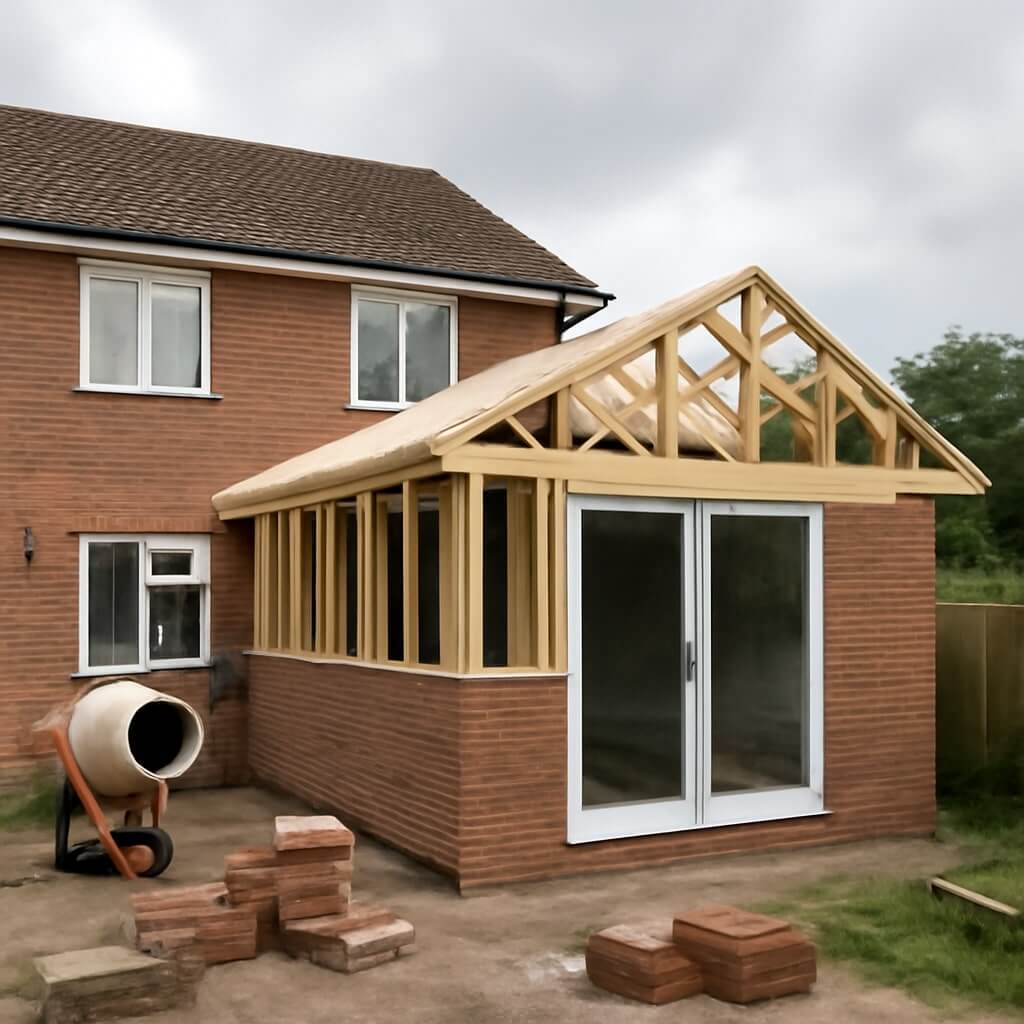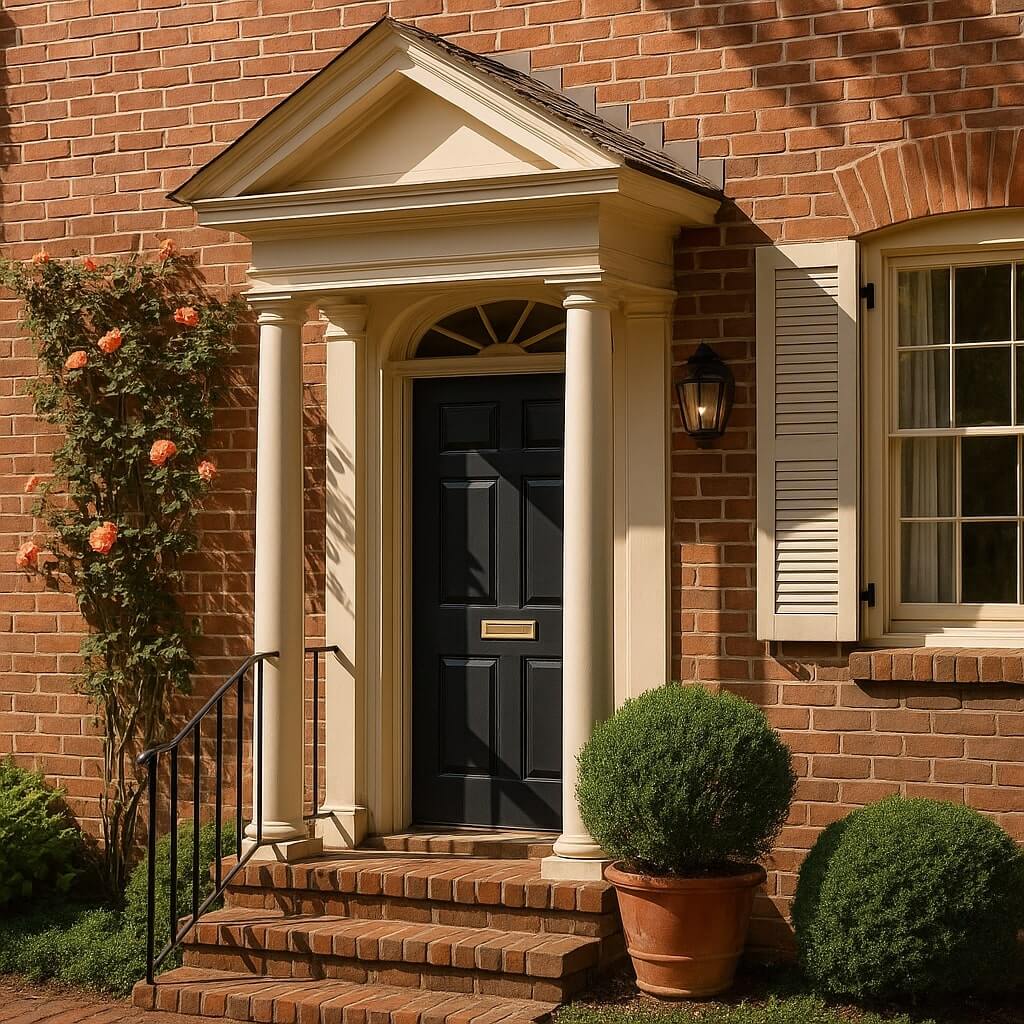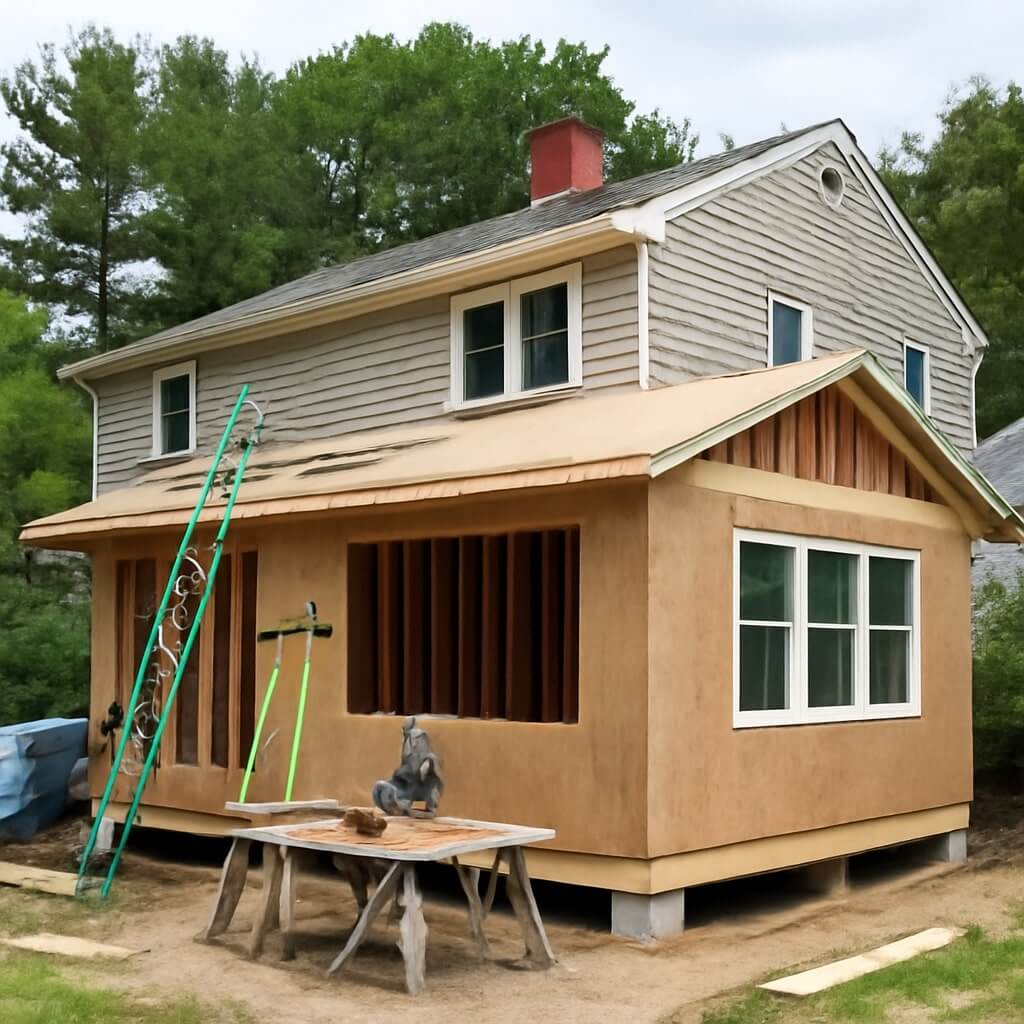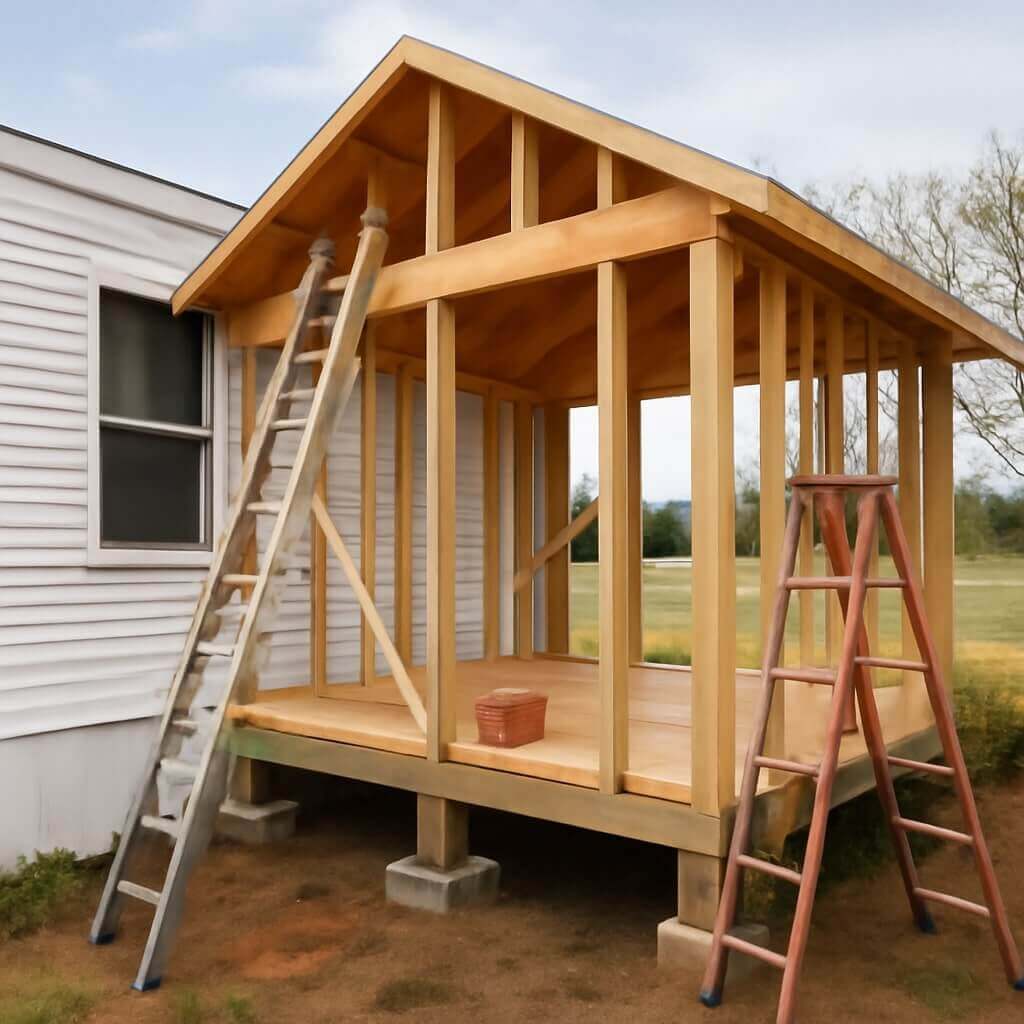When planning a home addition in Wakefield, you need to be aware of several key regulations that can affect your project. Zoning laws, setback requirements, and building codes play an essential role in shaping what you can and can’t do. Understanding these aspects not only helps you avoid fines but also guarantees your addition is safe and compliant. Let’s explore what you need to know to navigate this complex process effectively.
Key Takeaways
- Check local zoning laws to determine the permissible modifications and zoning classification for your property in Wakefield.
- Obtain all necessary building permits, including zoning, electrical, and plumbing, to ensure compliance and avoid fines.
- Familiarize yourself with setback requirements to understand how close your addition can be to property lines.
- Ensure compliance with local building codes through regular safety inspections during the construction process.
- Communicate with neighbors early to address concerns and review HOA guidelines for approval of your proposed addition.
Understanding Zoning Laws in Wakefield
When you consider a home addition in Wakefield, understanding the local zoning laws is crucial, as they dictate what modifications are permissible on your property.
Zoning classifications determine how land can be used within different residential districts. Each district has specific regulations that affect the size, height, and placement of your addition.
For instance, setbacks may limit how close you can build to the property line. Familiarizing yourself with these classifications helps guarantee your plans align with local guidelines, preventing potential issues or delays.
Always check with the local zoning office for the most accurate and updated information before proceeding.
The Importance of Building Permits
When planning a home addition in Wakefield, understanding the legal requirements for building permits is essential.
Failing to obtain the necessary permits can lead to significant consequences, including fines and mandatory removal of unapproved work.
Legal Requirements Overview
Understanding the legal requirements for home additions is essential, especially since failing to obtain the necessary building permits can lead to significant complications.
Here are key points to take into account:
- Familiarize yourself with local zoning laws and legal definitions.
- Stay updated on regulatory updates that may affect your project.
- Verify your plans comply with safety and structural standards.
- Document all permits and inspections throughout the process.
- Consult with professionals to navigate complex regulations effectively.
Consequences of Non-Compliance
Failing to secure the necessary building permits can lead to a range of severe consequences that impact not just the project at hand but your overall property value as well.
The consequences explained include potential fines, mandatory removal of unpermitted work, and legal action from local authorities. Non-compliance impacts your ability to sell the property, as buyers often seek verified permits.
Furthermore, insurance claims may be denied if issues arise from unpermitted work. Ultimately, adhering to regulations not only safeguards your investment but also guarantees that your home addition is a sound, legal enhancement to your property.
Setback Requirements for Home Additions
Although home additions can enhance your living space, they must adhere to specific setback requirements set by Wakefield’s zoning regulations. Understanding these rules is essential to avoid potential issues.
Here are key aspects to take into account:
- Setback measurements often vary by zone.
- Most additions require a minimum distance from the property line.
- Determine whether your lot is in a residential or commercial zone.
- Check local guidelines for height restrictions.
- Consult with planning officials for any special exceptions.
Compliance With Local Building Codes
When planning your home addition in Wakefield, understanding compliance with local building codes is essential.
You’ll need to secure the necessary permits and approvals while adhering to zoning regulations.
Additionally, ensuring your project meets safety standards is important for both legal compliance and the well-being of your home.
Permits and Approvals
Before commencing your home addition project in Wakefield, it’s essential to understand the necessary permits and approvals required for compliance with local building codes.
Knowing the different permit types and their approval timelines can save you time and potential headaches.
- Building permits for structural changes
- Electrical and plumbing permits
- Zoning permits, if applicable
- Environmental permits, depending on the site
- Homeowner association approvals, if needed
Make sure to research each permit’s requirements.
Delays in obtaining approvals can greatly impact your project timeline, so plan accordingly to guarantee a smooth addition process.
Zoning Regulations Overview
Understanding zoning regulations is essential for ensuring your home addition aligns with local building codes and community standards.
Zoning classifications dictate how land can be used, which directly impacts your project. Different zones may have specific requirements regarding setbacks, height restrictions, and overall land use.
Before you start planning your addition, familiarize yourself with your property’s zoning classification. This knowledge helps you avoid potential setbacks or fines, ensuring your addition is compliant from the start.
Always check with local zoning offices to confirm any updates or changes that might affect your plans. Compliance is key to a successful home addition.
Safety Standards Compliance
While planning your home addition, ensuring compliance with local building codes is essential for both safety and legality.
Adhering to these standards protects you and your investment.
Here are key aspects to contemplate:
- Schedule regular safety inspections
- Conduct thorough compliance checks
- Familiarize yourself with structural requirements
- Understand electrical and plumbing standards
- Keep updated with any local amendments
Environmental Considerations
As you consider a home addition in Wakefield, it’s crucial to factor in environmental considerations that can impact both the project and the surrounding ecosystem.
Using sustainable materials not only minimizes your addition’s environmental impact but also enhances energy efficiency.
Incorporating sustainable materials significantly reduces environmental impact while improving energy efficiency for your home addition.
Evaluate how your design choices affect local wildlife and vegetation, and prioritize eco-friendly practices throughout the construction process.
Additionally, consider the long-term effects of your addition on water runoff and soil health.
Impact on Property Taxes
When planning a home addition in Wakefield, it’s essential to take into account how it might affect your property taxes. A well-executed addition can greatly increase your property value, which in turn may lead to higher tax assessments.
Here are key factors to keep in mind:
- Local tax rates
- Property value increases
- Assessment timing
- Potential exemptions
- Planning and building permits
Understanding these elements will help you anticipate changes in your tax liabilities.
Consulting with a tax professional can provide tailored insights, ensuring your home addition aligns with your financial goals while managing any potential tax implications effectively.
Homeowners Association Regulations
Before starting your home addition in Wakefield, you must consider any regulations set by your Homeowners Association (HOA).
HOAs often impose restrictions on design, size, and materials, impacting your homeowner rights. It’s vital to review your HOA’s guidelines to guarantee compliance and avoid potential penalties.
Additionally, be mindful of association fees, as some HOAs require payment for architectural review or application processing. Understanding these regulations can save you time and money, assuring your project aligns with community standards while safeguarding your investment.
Always consult your HOA before proceeding to avoid future complications with your addition.
Navigating the Approval Process
Understanding your HOA’s regulations sets a solid foundation for maneuvering the approval process for your home addition in Wakefield.
Familiarizing yourself with HOA regulations is essential for successfully navigating home addition approvals in Wakefield.
Keep these design considerations and timeline expectations in mind:
- Submit necessary documents promptly
- Guarantee compliance with local zoning laws
- Address any potential neighbor concerns
- Be prepared for inspections and evaluations
- Factor in revision requests from the HOA
Conclusion
In summary, managing the regulations for your home addition in Wakefield requires careful attention to zoning laws, permits, and building codes. By understanding setback requirements and environmental considerations, you can guarantee compliance and enhance your property’s value. Don’t forget to communicate with neighbors and check any HOA guidelines that might affect your plans. By following these steps, you’ll streamline the approval process and create a successful addition that meets both your needs and community standards.




